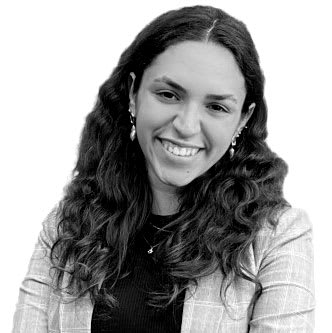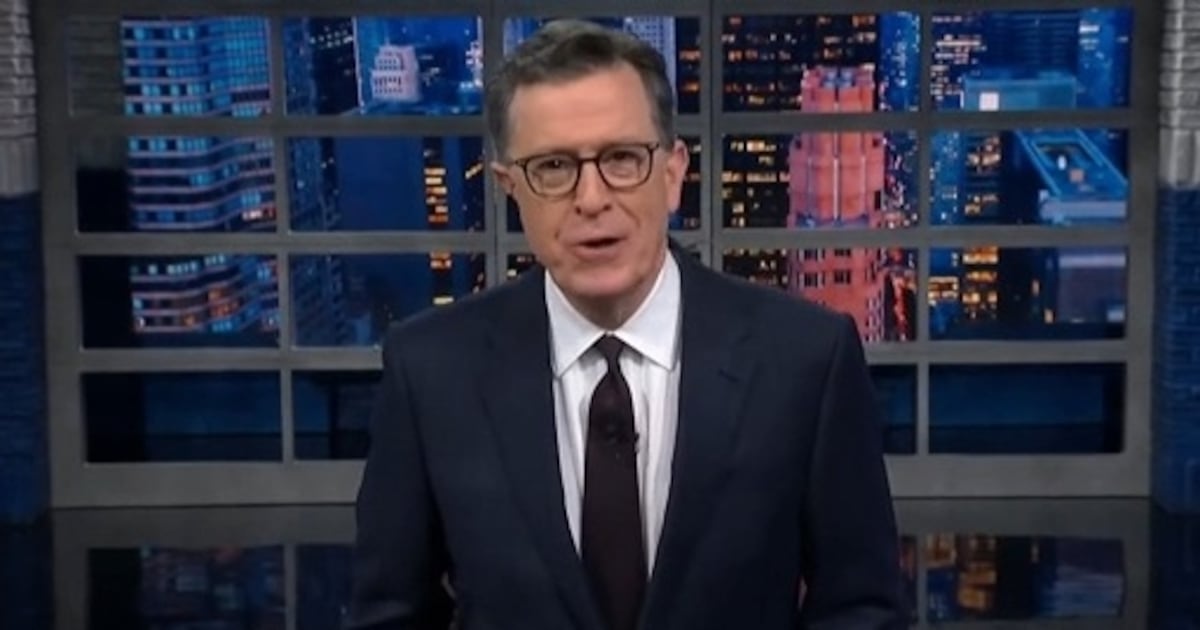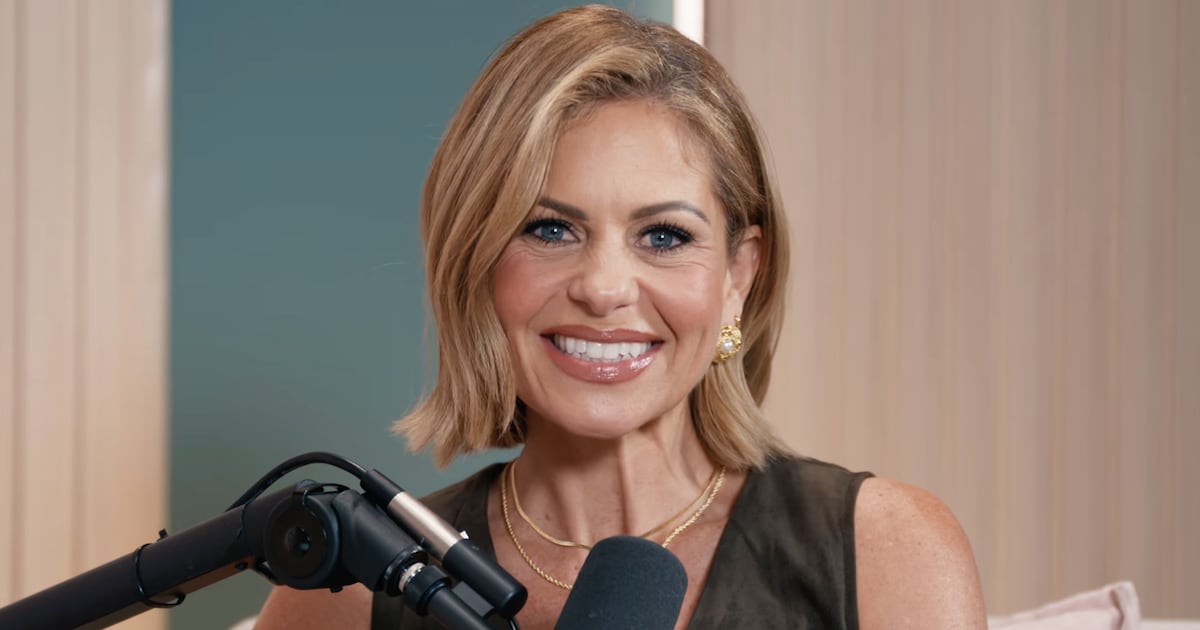On any given Saturday afternoon, Leslie Peña gets ready to shut the door to the master bedroom in her Grand Concourse apartment. Before she does, she gives her three daughters, aged 18, 12, and 7, her usual warning: “When the door’s closed, the Zoom’s on,” she says intently, donning her green velvet blazer, her hair carefully styled in a tall bun. “That means, ‘Don’t come in. Mom’s training.’”
The girls are used to this routine. Peña, 42, has spent at least 45 minutes each week on Zoom with her coach, Robert Galinsky, for the past three years. During these sessions, she practices speaking economically, reflecting on her biggest achievements and unearthing her deepest traumas. The goal? To get cast on a reality television show.
“I was born and raised in New York—in the Bronx,” says Peña during one session, workshopping her intro for a potential casting interview. It’s clear that she’s been practicing—her cadence is steady and rehearsed.
“Is there another name for the Bronx besides ‘The Bronx’?” Galinsky asks. Peña pauses to think.
A smile creeps onto her face.
“The ‘Boogie-Down Bronx’?” she offers.
“That’s it,” says Galinsky, as Peña’s laughter crescendos. “That’s your opening. ‘My name is Leslie Peña, and I was born in the Boogie-Down Bronx.’”

Leslie Peña.
Courtesy Nicole PeñaIt was at an open mic in Manhattan where Peña, a model and aspiring performer, first met Galinsky in 2021. He was the event’s emcee.
Galinsky, 59, founder of Galinsky Coaching and the New York Reality TV School, “fell in love with live performance” at 20, he says. Since then, he has acted on both stage and screen in one-man shows and minor roles. Over the years, his style has changed considerably. He has transitioned from his clean-shaven face and longer, slicked-back hair to short, black curls and a salt-and-pepper goatee. On his IMDb, he characterizes himself as “playwright, actor, poet, coach, entrepreneur, father, town crier and agitator.”
“I have always been in education and volunteerism, and [helping] people who are considered on the margins or challenged in some way,” Galinsky says. Reality television coaching, he says, hits the sweet spot.
Before they met, Peña hadn’t considered reality television as a career goal. But the more she thought about it, the more she felt that it might allow her to “spread her wings as an artist.” When Galinsky suggested that she join his reality television school, Peña felt elevated.
“I was chosen,” says Peña with confidence. Her smile is unwavering. “He saw I had something special.”

Reality TV coach Robert Galinsky during a TEDx talk.
Courtesy Robert GalinskyApplicants for the New York Reality TV School, founded in 2008, must respond to Galinsky’s short email questionnaire, which asks about their target shows, previous performance experience, and availability for coaching. He receives 200 applications for his program every year. The school’s eight-week tuition runs $2,500. Since the school’s founding, 13 of Galinsky’s estimated 7,500 clients—500 meet with him at least once each year—have been cast on reality television shows.
Peña, who hopes to be the 14th, became one of Galinsky’s students shortly after they met. At the time, Galinsky held classes of 10 to 20 students in his Midtown office. He has since transitioned to a fully remote format on Zoom.
“Everyone is there for the same thing,” Peña says. “We all have a love of the arts, and we all want to get into reality TV.”
Peña has also signed on for one-on-one coaching with Galinsky and estimates that she’s spent close to $1,500 total on his coaching, beyond class tuition. While Galinsky charges $250 an hour, he offers a sliding scale if “they have some kind of hardship and need to do a deferred payment or a discount,” which he says makes his services accessible to a wider range of clients.

Reality TV coach Robert Galinsky teaching a class.
Andrew EinhronThe remote, one-on-one coaching sessions work better for Peña, who splits time between her Bronx apartment and a house upstate in Goshen, New York. She still finds it motivating to work with other students striving toward the same goal: “There's friendly competition, in a sense, where everybody wants to do their best.”
“Whaddup, Survivor?”
Jon, 31, a musician and part-time teacher from Harlem who declines to share his last name due to concerns about ongoing casting, speaks to a handheld camera. His plain, black T-shirt matches his unstyled-but-kempt black hair. He stands in Riverbank Park in uptown Manhattan, overlooking the West Side Highway.
“I wanna tell you the type of guy that you’re gonna get if you cast me on the show. You are gonna get a guy who only knows how to put his whole heart and soul into the things that he cares about,” says Jon to the camera with an earnest smile. With his free arm, he gestures theatrically after every percussive consonant, eyebrows raised. “I think it comes from the sense that I’ve had, even from a young age, that I’m not the most naturally gifted person in the world.”
In his five-minute audition tape, Jon walks the viewer—a casting agent, he hopes—through his story. He gesticulates in the park as he talks about attending an all-boys sports camp and amassing “a mantle full of spirit awards.” Then, in his Hamilton Heights apartment, he rolls around in his desk chair as he shares why he wants to meet people with diverse experiences. On an esplanade bench, he says that he yearns to “go out and experience life—rich, messy, beautiful, filthy life.” His eyes are shut tight. There’s no hiding his enthusiasm, no playing it cool.
“I am so excited to show people that it doesn’t take some sort of special talent to achieve your dreams. All it takes is a belief in yourself and the willingness to pursue them and not let anything get in your way,” he concludes. “I know I can do it because that’s how I’ve achieved everything in life—and it’s how I know that I will be your next Sole Survivor.”
For six years, Jon has been trying to get cast on Survivor, his favorite show. The three adjectives that he used to describe himself in his last application were “Driven,” “Charming” and “Chatty.”
Jon has been watching the series since its premiere in 2000.
One of his all-time favorite episodes is Season 16, Episode 30—a “classic,” he says, because it set a precedent for later, more underhanded gameplay. As he curls up on the couch in his apartment to rewatch it for the “third or fourth” time, his familiarity with the material is evident. His eyes widen as he watches the female contestants conspire to eliminate the remaining male player, Erik Reichenbacher, and he can’t hide his smile once they succeed.
“Just wait,” he says, biting his fist as contestants plan a mass betrayal of one of their own. He can barely contain himself. “It’s crazy. This is crazy.”
He knows everything about the players, from their hometowns and play history to their families’ reactions to their eliminations. He also knows everything about production—where the “franken-bites” are, what producers cut out altogether and what host Jeff Probst was thinking during every scene.

Students during a Robert Galinsky reality TV class.
Andrew EinhornDuring the first COVID-19 outbreaks, Jon turned to a Survivor online game, where fans and alumni simulate the experience of living and competing on the island.
For Jon, the virtual gameplay was just a hobby, but he formed friendships with former contestants. It was a Survivor alumnus, whom Jon declined to name, who first told Jon that he had casting potential.
“He said to me, personally, ‘What are you doing, not on the show?’,” says Jon. That year, along with 25,000 other United States and Canadian citizens, Jon sent in his first audition video. The Survivor casting team never replied.
When the former contestant eventually viewed Jon’s tape, his response was critical.
“He said, ‘You have no idea what you’re doing,’” remembers Jon.
With the alumnus’ encouragement, Jon contacted Survivor royalty Adam Klein, who appeared on both Season 33: “Millennials vs. Gen. X,” where he won the $1 million prize, and Season 40: “Winners at War,” an all-star round featuring previous winners. Klein, who also grew up watching Survivor, found that other fans “started reaching out, asking for help with their audition videos.”
His coaching gained traction quickly. At first, he only asked for donations to lung cancer research. But as demand grew, he started a company.
“I was starting to have to either ignore or say no to people, because I just didn’t have the time,” says Klein. “If I wanted to keep helping people, I needed to charge.”
At Adam Klein Reality TV Casting Coaching, launched in 2020 and based in Los Angeles, Klein’s rates start at $150 for a 30-minute brainstorming session and $225 for an audition video review. Premium packages, including follow-up sessions and meetings if clients advance to later rounds, start at $345.
Jon argues that the ends justify the means: three of Klein’s clients have successfully made it onto Survivor. “I’m willing to pay Adam because I know he has experience,” Jon says.
Klein began coaching Jon on how to loosen up and stop performing during his self-tape, a process that Jon found “very intimidating.”
Jon’s audition tape, which Klein critiqued several times before Jon submitted it in August, scored him an email reply a month later. The casting team sent him a written questionnaire, which he promptly completed. He used colorful language to talk about his pet peeves, like the people who stand in the aisle of the stadium “to take a PICTURE IN THE MIDDLE OF THE GODDAMN INNING.” When the form asked if he had any tattoos or piercings, he responded, “No, my mother would kill me.” For the all-important “Why Survivor?” prompt, his response text didn’t fit in the available one line.
“Because Survivor is the greatest game in the world, the 4th major American sport (above hockey) and I know I have what it takes to win it,” it read. “I want to dive in head first and go on the adventure!”
But he hasn’t heard from the casting team since.
“But the benefit is that now they know who I am,” Jon says. “Next year, if—or when—I apply, I’m just going to email it directly to the casting director.”
How much does any of this sometimes-pricey, always time-consuming coaching help contestants find their way onto shows? People in the reality television casting business encourage most aspirants not to get their hopes up.
James Cornwell, a partner at Los Angeles’ Cornwell Casting and a casting agent for 20 years, has helped cast reality shows from VH1’s Love at First Kiss to ABC Family’s Beverly Hills Nannies.
Cornwell delicately characterizes Galinsky’s website as “clickbait crap.” For Cornwell, casting reality television has always been about finding authentic personalities amid a sea of manufactured ones.
“I just don't know how much anybody could help somebody else be themselves,” Cornwell says. His biggest aversion to services like Galinsky’s and Klein’s is that their clients are trying to get on any reality television show, rather than one that might be a good fit. For his recent casting of an Amazon Prime quiz show with a $100,000 prize, Cornwell received 5,500 applications—and he has no intention of keeping the email addresses of anyone he rejects. In fact, if Cornwell notices that people have applied to multiple shows that he’s casting, he’s unlikely to consider them for any.
“How could they possibly think they're right for every single show?” he says. “It means that they’re just hungry for fame, and we’re not trying to sell somebody a ticket to fame.”
Galinsky, for one, has been the subject of plenty of scrutiny and critique from both media outlets and industry professionals. VICE’s Jeffrey Bowers characterizes him as “authentically oblivious or accidentally gangster” for his decision to found a reality television school with no reality show experience of his own. While Slate’s Troy Patterson admits that the course he audited was “not as imbecilic as I’d hoped,” it ultimately “amounted to a three-hour lesson in cultivating narcissism.”
Peña is less critical, characterizing Galinsky as a “light” in her professional and personal life.
“He changes lives,” Peña says. “All he has to do is get in a room with you personally, one on one, and listen to your story.”
A lot of the time, Cornwell says, you can tell whether someone’s going to be right for a show within the first minute or two of the interview. “So if these consultants are teaching people how to be themselves, then I guess it probably couldn't hurt.”
But Klein has heard this line from casting producers and directors before. “Being yourself is so much easier said than done,” he notes.
“It’s good advice, but there are so many versions of what it looks like to be yourself. There’s a version of yourself that is tired at the end of the day, and that’s not the version of you that is going to get cast,” Klein says. “It’s really about storytelling, speaking, sharing, sharing your personality through your words and your facial expression and your body language and using your expressiveness and your opinions to reveal who you are.”
Cornwell, skeptical, advises reality TV hopefuls to at least not disclose that they’ve sought coaching. “If somebody said they had attended a reality television school before we did their interview, we would automatically count them out,” he says.
For both Jon and Peña, it’s a waiting game.
It’s been five months since Jon last heard from the Survivor casting team. “Based on my knowledge of other people’s stories, I would be surprised if I heard back at this point,” he says. But he’s already planning his next application. He intends to keep applying “until it starts feeling embarrassing.”
And he plans to keep using Klein. “I don’t think I’ll need to use him as extensively next time,” he says, but he’ll “get his eyes” on the audition video before he submits it.
“He knows what he’s talking about,” Jon says. “He’ll see things I won’t see, and it’s less embarrassing than sending it to a friend.”
Peña continues to audition for television roles and commercials, but her main focus remains getting cast on a reality show. She’s not ready to give up.
“It’s all about having a positive mindset,” she says. As she prepares for her next audition, she catches a glimpse of herself on the Zoom monitor. Her hair is slicked back, and she breathes in deeply. She speaks with conviction, both to the camera, and to herself: “I’m ready for this.”
Editor's Note: An earlier version of this story incorrectly said Galinsky was featured on the RipOff Report.






